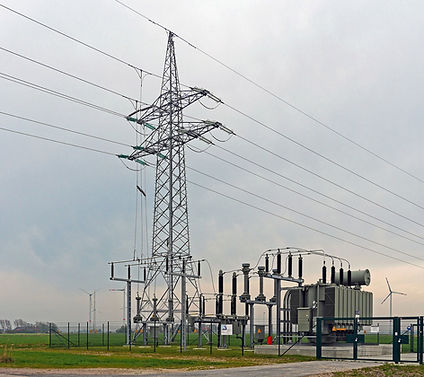RESEARCH & DISCOVERIES
The traditional power systems are evolving to changes in market mechanisms, technologies, business models, and market structures. Worldover, the focus is to develop economic models for delivery of energy to end consumers. Added to this are the challenges associated with higher renewable energy penetration. This requires a new focus on how to see the problems, and novel mechanisms to solve the ever evolving challenges.
The Power Management Research Group focuses on multiple aspects of the evolving industry, from theoretical and practical perspectives. Some key facets are highlighted:

Electricity Markets
The evolving industry structure has created competitive players for electricity generation, transmission and distribution. With a strong profit motive, the players operate in the markets over multiple platforms time domains. This requires new modelling techniques to aptly model their behaviour in competitive markets and obtain fast solutions. Our research provides multiple perspectives of player behaviour, and resultant market and system dynamics.
Renewable Integration
Renewable wind power generation is increasing over the years because of its attractive features like environment friendly and negligible operational cost. Many countries are setting the targets to integrate renewables over the years. However, the power system faces many challenges due to the uncertain and variable nature of renewable power production and it is becoming inevitable to bring some mechanism to overcome the intermittency of renewables. Our group mainly focuses on forecasting, system operation, markets, frequency regulation and many others under renewable integration.


System Operation & Analysis
Optimal system operation has evolved with a novel perspective in restructured power systems where System Operator is a stakeholder and targets the problem considering congestion management, system security and reliability. As the system integrations are rising, major challenges are modelling the complex optimal operation and managing the computational requirements. Our research group works on the security constrained unit commitment and economic load dispatch under deregulated structure considering emerging renewable and storage integrations.
Power Sector Regulation
The traditional cost based regulation is evolving to performance based regulation, and standards of performance are coming up as an integral part of the tariff mechanisms. Significant green regulations are also being adopted to make the energy supply systems carbon neutral. Unless the regulator has a long term view of regulatory impacts, frequent regulatory changes could lead to weak investor confidence. Regulatory mechanisms have to evolve towards providing a subsidy free customer engagement, while keeping pace with evolving markets and smart grid systems.


Power System Flexibility
Transition of power systems towards low-carbon electricity generation comes with additional challenges to manage load-generation balance. Power systems should have adequate flexibility to effectively manage large-scale integration of variable renewable energy sources. Flexibility can be improved from various options ranging from conventional units, demand response, energy storage to sector coupling. However, the major challenge lies in assessment of flexibility requirements and planning such flexible resources. Our work focuses on developing long-term planning models for estimating optimal flexible resource mix, assessment of operational flexibility, development of market products to enhance its availability.
Network Pricing
In a monopolistic network industry, an efficient network charging mechanism can provide appropriate locational signals to users to locate and use network capacity accordingly. This can lead to a long term optimal investment in the network, providing network services at optimal charges for the consumers. Development of efficient transmission and distribution network pricing mechanism, along with connection charging mechanism is the need for healthy growth of any evolving electricity market.

%20(1).png)